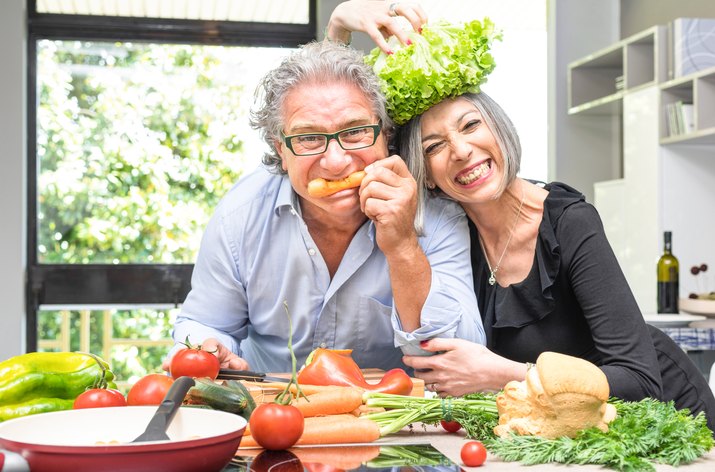
Introduction
Sure, age is just a number — but the lifestyle choices you make all affect how much you really show your age. Salty, sugary fare and fried foods all contribute to cellular aging, and they can also promote dehydration to make you look older, too. Minimally-processed foods, on the other hand, tend to contain at least one nutrient that fights the visible signs of aging — and they benefit your overall health to lower your "biological age," too. Keep yourself young by loading up on these ultra-healthy foods. While they can't actually turn back the clock, they'll help you look and feel your best.
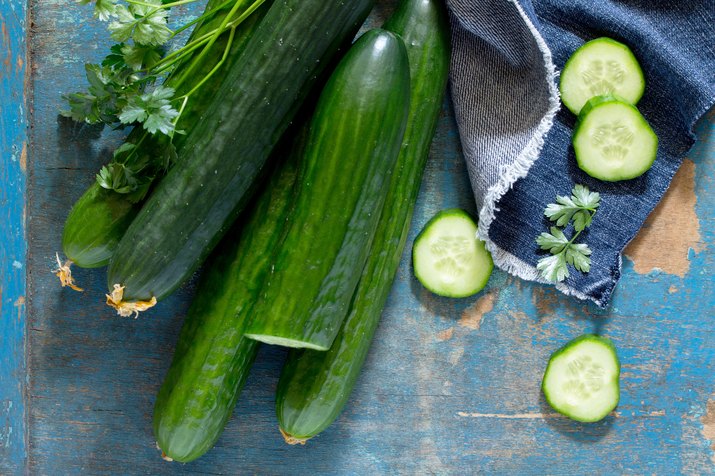
Cucumber
One of the easiest ways to instantly look younger is to make sure you're hydrated. Water not only helps flush away toxins, but dehydration can mess with your metabolism and make you feel sluggish (not ideal when you want to look and feel young!). Staying hydrated, on the other hand, keeps you feeling energized, and also visibly plumps up your skin cells for a smoother and more youthful complexion. At 96 percent water, cucumber is an easy way to stay hydrated — and it's a tasty alternative to plain ol' water. Throw some sliced cukes into your salads, or dip them in hummus for a yummy snack.
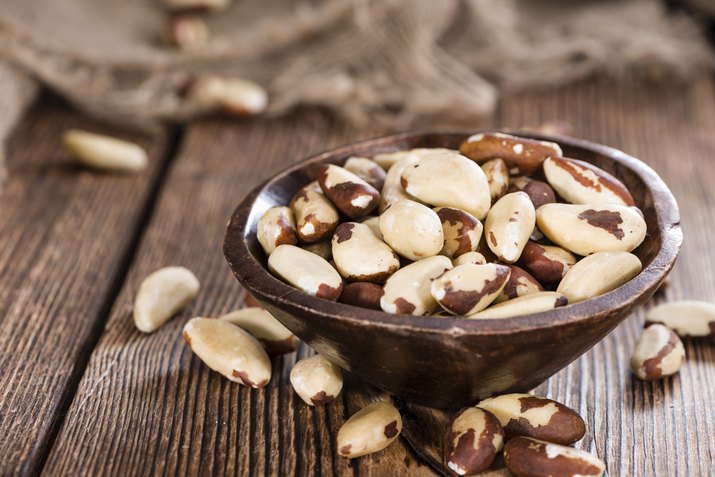
Brazil Nuts
When you're eating to look young, Brazil nuts should be a staple in your diet for one reason: they're absolutely packed with selenium, an essential mineral. Selenium is crucial for the function of certain antioxidants within your cells — which means it helps your cells round up and destroy toxic free radicals that would otherwise run amok and accelerate the aging process. A single Brazil nut contains all the selenium you need for the day, so pop one in the morning as a kind of "multivitamin" to get the antioxidant protection you need.
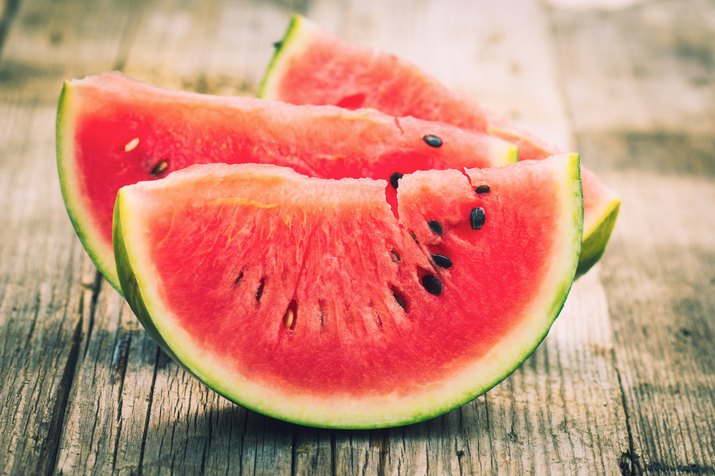
Watermelon
Watermelon isn't just the taste of summer, it's also a powerful anti-aging food. For one thing, watermelon is right up there with cucumber among the most hydrating foods available, so it's great for keeping your tissues (including your skin) healthy and youthful. Watermelon is also a great source of lycopene, an antioxidant that has been shown to mitigate some of the skin damage you'd receive from sun exposure. Slathering on that SPF is still important for looking young, of course, but watermelon can pick up some of the slack.
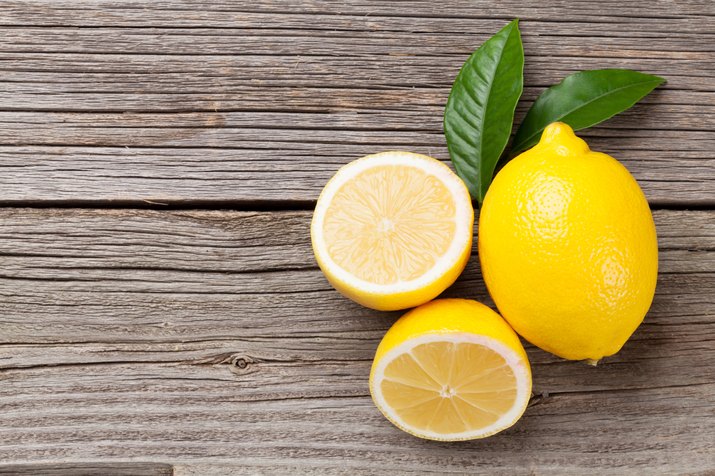
Lemon
Your morning lemon water isn't just great for your metabolism, it keeps you looking young too. On top of enhancing your hydration (are you sensing a theme here?), lemon is also a fantastic source of vitamin C. This vitamin is among the most powerful anti-aging nutrients, because it directly supports the production of collagen, the protein that keeps your skin (and hair) smooth and strong. Vitamin C is also important for healthy gums to support a beautiful and smile, and it's important for energy production to keep you active and feeling young. Sip on a glass of lemon water in the morning, and use lemon juice to make homemade vinaigrettes to boost the anti-aging potential of your salads.
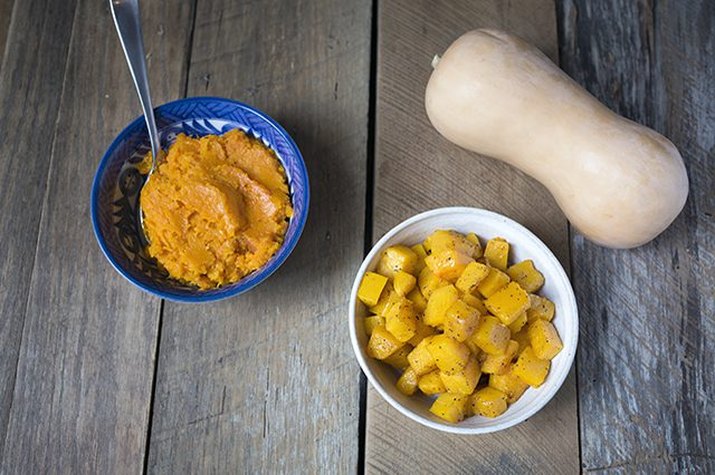
Butternut Squash
Pumpkin might steal the spotlight for a few months every year, but butternut squash is the real autumn star when it comes to anti-aging properties. That's because it's a fantastic source of beta-carotene, a nutrient that your body converts into vitamin A. Beta-carotene is a powerful antioxidant, so it'll take out pro-aging free radicals, and it also nourishes your skin for a smooth complexion. What's more, vitamin A is important for a healthy immune system — which is a good thing, because nothing takes away your youthful glow faster than an icky cold or flu. Here are two common ways to cook butternut squash.
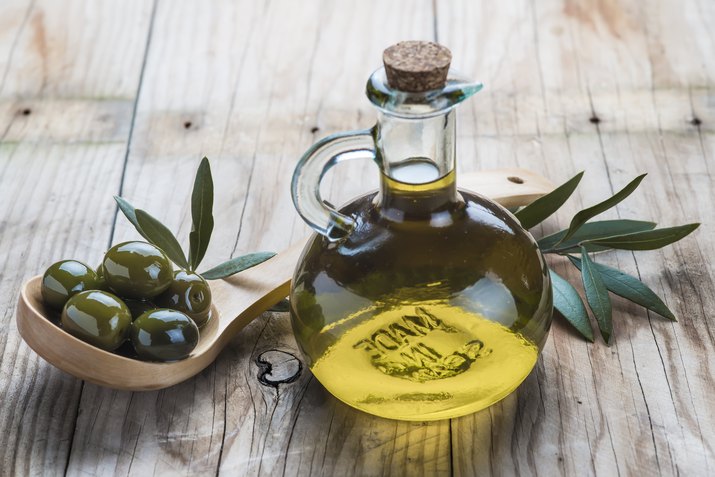
Extra Virgin Olive Oil
Hydrating foods are great for looking younger, but it's important to get the right fats too. Your skin, for example, needs both water and lipids to stay healthy and moisturized, which is the key to a youthful complexion. So cooking with extra-virgin olive oil is a great way to fight visible aging. Because it's loaded with heart-healthy unsaturated fatty acids, EVOO supports healthy circulation, and it's even packed with antioxidants to fight pro-aging free radicals. What's more, a little fat in your food helps you absorb other key nutrients that fight aging, including lycopene, beta-carotene and vitamin A. So serve roasted butternut squash lightly coated in fat, or make a watermelon salad featuring olive oil, cracked black pepper and feta cheese.
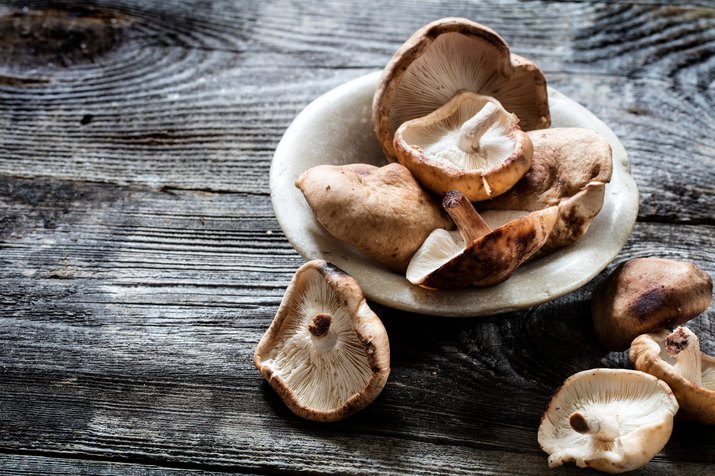
Light-Treated Mushrooms
Mushrooms certainly aren't the most glamorous vegetable other there, but the humble 'shroom has powerful anti-aging benefits. For one thing, mushrooms are a surprisingly great source of antioxidants — in fact, researchers have found that white mushrooms are the best source of a specific antioxidant, called ergothioneine. Buying mushrooms treated with ultraviolet light also ensures you're getting a good source of vitamin D, a nutrient essential for healthy bones. Getting enough vitamin D in your diet may help fight osteoporosis (and that hunched over posture that can come with it). And it will also help you avoid the fatigue that can sometimes be associated with vitamin D deficiency.
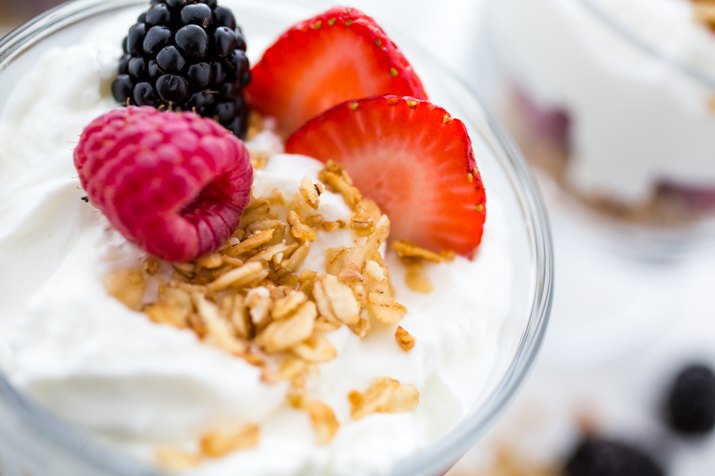
Nonfat Greek Yogurt
Also important for strong bones? Calcium. Getting enough of this mineral is absolutely crucial for maintaining healthy bone density as you age — while low calcium levels can weaken your bones and make sure you truly look your age (or older). Like most dairy products, Greek yogurt is a great source of this mineral. It's also loaded with protein, which you need to maintain smooth skin, healthy hair and strong joints. Use Greek yogurt to make fruit-and-yogurt parfaits in the morning, add a spoonful to your smoothie, or mix Greek yogurt with lime juice, cumin and chopped cilantro for a healthier alternative to aioli. For the truly adventurous, try making your own yogurt at home.
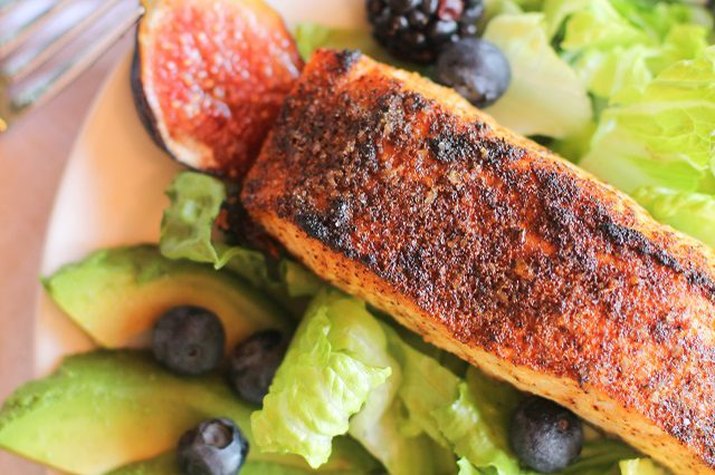
Salmon
Salmon is a nutritional superstar for so many reasons — from its heart-healthy benefits to its ability to promote good nerve health — and you can add anti-aging properties to the list. Its omega-3 fatty acid content helps fight aging on a cellular level, because omega-3 fats fight inflammation — a long-term chronic irritation that contributes to cellular damage and drives the aging process. Salmon is also a source of astaxanthin, an antioxidant related to lycopene and beta-carotene. Serve your salmon drizzled with a mix of EVOO and chopped herbs for an anti-aging entrée, and add a generous serving of two of veggies on the side.
Advertisement
Video of the Day
- USDA NND: Cucumber, With Peel, Raw
- Linus Pauling Institute: Selenium
- Linus Pauling Institute: Carotenoids
- Linus Pauling Institute: Vitamin A
- Linus Pauling Institute: Vitamin D
- SpringerPlus: Vitamin D deficiency and fatigue: an unusual presentation.
- Berkeley Wellness: Astaxanthin in Salmon: Pretty in Pink?